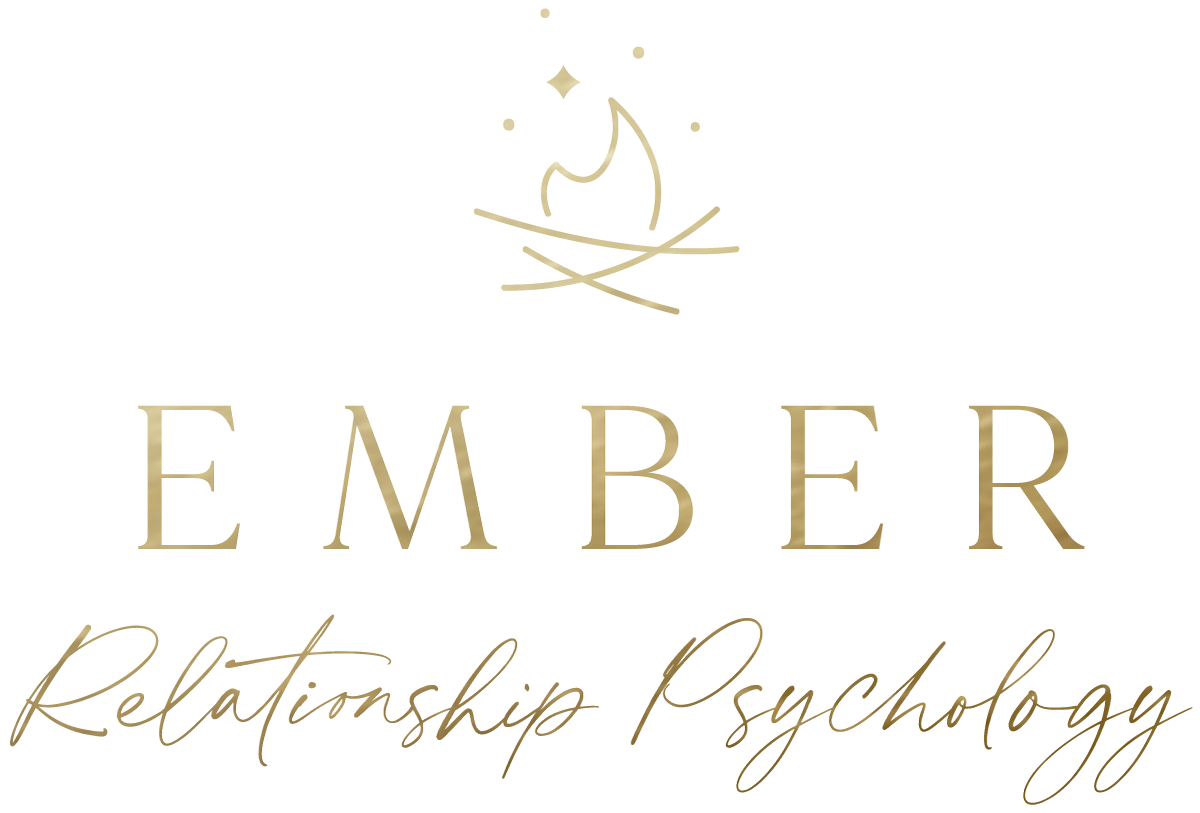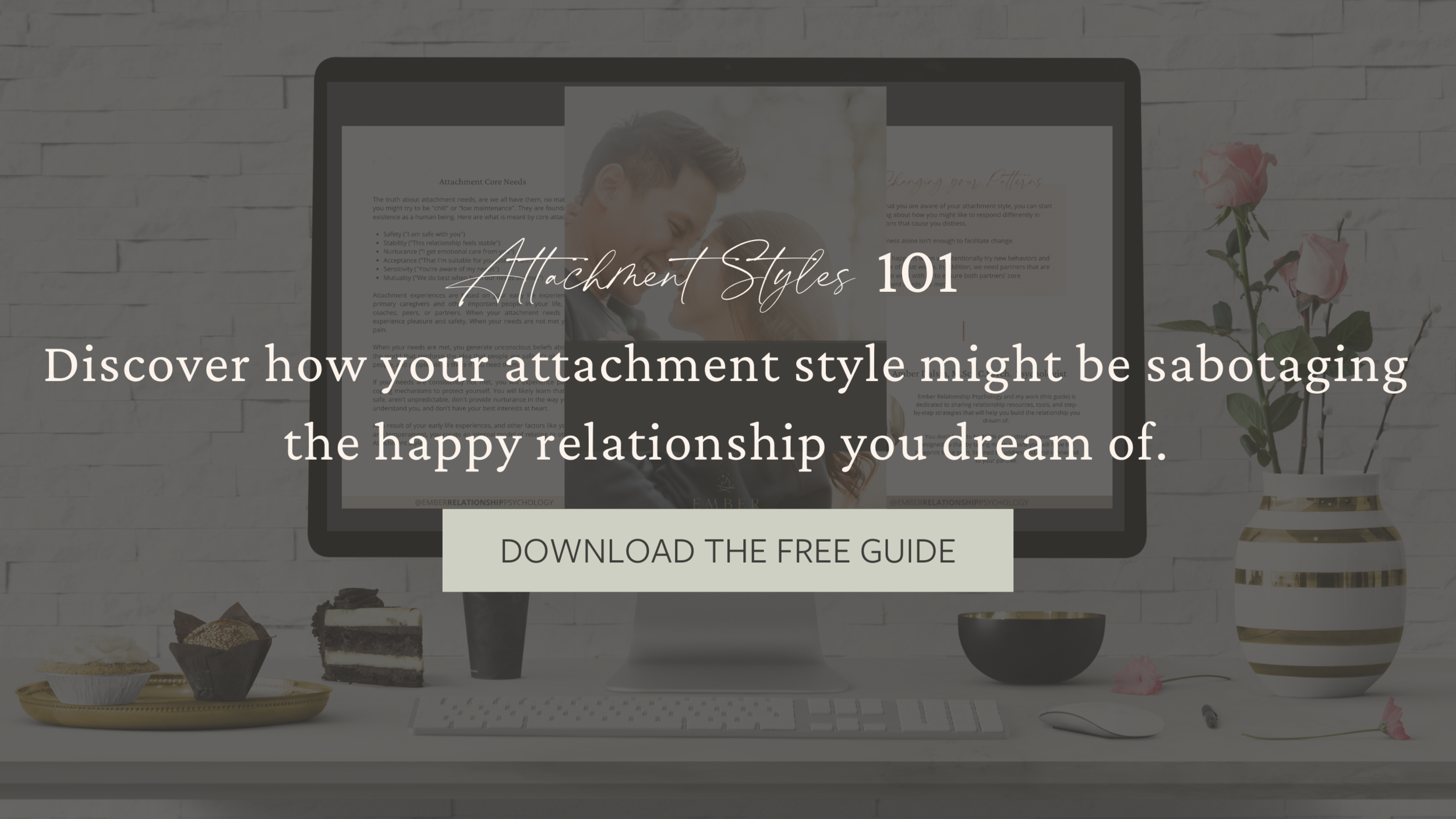Attachment and Communication
by Amber Dalsin, M.Sc., C.Psych.
Some people avoid conversations.
Others aggressively attack conversations in order to “win.”
Some seek to hear the other person and calmly express their side. Ask yourself:
Which approach do you use?
Why that is your go-to style?
Our attachment styles, beliefs, and values influence how we respond in conversation. This can leave our partners feeling like they are walking on eggshells, like they aren’t being heard, or desperate for connection.
Secure
Those who are low in anxiety and low and avoidance have a secure attachment style. They usually feel comfortable with intimacy and don't really obsess about the relationship.
Anxious
People who have anxious attachment are usually low in avoidance and high anxiety. This means they really deeply want to be close and connected to their partner and at the same time they have a number of fears that relate to not getting their emotional needs met or their partner eventually leaving them either physically or emotionally.
Avoidant
Avoidant individuals may not prefer intimacy. They have a high degree of autonomy and a sense of wanting freedom-as if there is a need for independence or separateness that can be difficult to articulate.
Attachment and Communication
Based on each person’s comfort with closeness and how much anxiety they have, they will communicate in different ways.
At the heart of attachment styles is the fear of our core needs not being met. When an attachment trigger is activated, we go into surrender, avoid, or overcompensate responses. Acting on the belief cultivated by our attachment style.
Anxious Responses
If we are anxious, we may believe that the relationship was doomed. You might feel desperate to talk, or you could be flooded with reasons your partner shouldn’t pick you.
You’ll likely engage in a surrender, avoid, or overcompensatory strategy rather than calmly expressing yourself.
An overcompensating response is to be aggressive or hostile, call/contact repeatedly, or try to manipulate the situation. When doing this, the communication is often guilting, aggressive, intense, or confusing-the goal is to prevent the feared outcome from coming true.
If this person is avoidant they will try to avoid their partner, the situation, being in a relationship, or use substances to attempt to eradicate the distress.
Lastly if they are surrendering, they might not do anything or say how they feel. They may stay in a relationship they feel unsafe in and where their needs are not being met.
Avoidant Responses
When someone has a more avoidant style, they are more likely to think about how their partner is not compatible, feel like they don’t have enough freedom, and think their partner has malicious intentions.
If they are overcompensating, they are likely to hurt others before they can be hurt.
They are more likely to avoid being vulnerable and keep secrets to themselves.
If they are surrendering to this belief, they might pick relationships where they feel like they don’t have enough freedom and partners who treat them poorly.
Secure Responses
Many people with secure attachment style believe that their needs and dreams are worth expressing. They have a belief that people will hear them and will generally be validating and loving in response to these concerns.
Because they have different thoughts and core fears, their coping responses will be different.
Changing Your Style
First, notice how you respond when you are activated by your partner and the behaviours you engage in when your core needs are not being met. Then consider: if you believed that your needs and dreams were worth expressing and you believed your partner would be loving and validating, how would you communicate?
Yes, I know your partner might not be loving and validating, but if they were, how would you speak? By considering these ideas you are paving the path to changing your communication patterns. This is something that takes exploration, trial and error, and happens slowly over time.
This blog is not meant to be a substitute for couples therapy or relationship counselling. This should not be construed as specific advice. See a relationship therapist in your area to address your specific problems.


